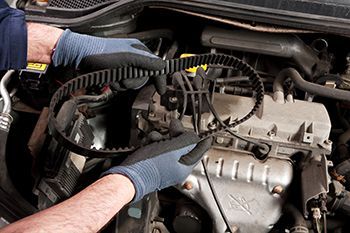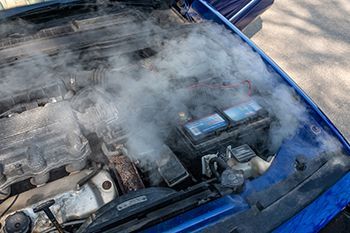By Spectrum Car Care
•
April 15, 2025
Your engine’s timing belt plays a crucial role in keeping the crankshaft and camshaft synchronized, enabling the engine’s valves to open and close at the right time. If the timing belt fails, it can lead to severe engine damage. Since timing belts typically wear out over time, it’s essential to recognize the warning signs before they snap. At Spectrum Car Care, we provide expert timing belt replacement in the greater Gilbert, AZ area. Here are three signs that your timing belt may be failing. Ticking Noise from the Engine One of the most common signs of a failing timing belt is a ticking noise coming from the engine. This sound occurs because the belt controls the movement of the engine’s valves, and when it begins to wear down, the components don’t function as smoothly as they should. If you hear a persistent ticking noise, it’s important to have it inspected ASAP. Ignoring this sound can lead to more serious issues, including engine failure. Difficulty Starting the Engine If your car struggles to start or won’t start at all, a failing timing belt could be the culprit. When the belt is severely worn or broken, it prevents the camshaft from turning properly, making it difficult for the engine to ignite. In some cases, the starter motor may turn over, but the engine won’t engage because the valves aren’t functioning correctly. Engine Misfires or Rough Idling A worn or stretched timing belt can cause the engine’s valves to open and close at incorrect intervals, leading to misfires. When the belt is not properly aligned, it disrupts the combustion process, potentially causing rough idling, hesitation, or poor acceleration. If your vehicle is running inconsistently or you experience sudden power loss, it’s a potential sign that the timing belt may be slipping or damaged. Addressing the issue early can help prevent more expensive repairs. Auto Repair in Gilbert, AZ For auto repair in Gilbert and the surrounding area, contact Spectrum Car Care at 480-535-4056 . Feel free to give us a call to make an appointment for car care in Gilbert, AZ!



